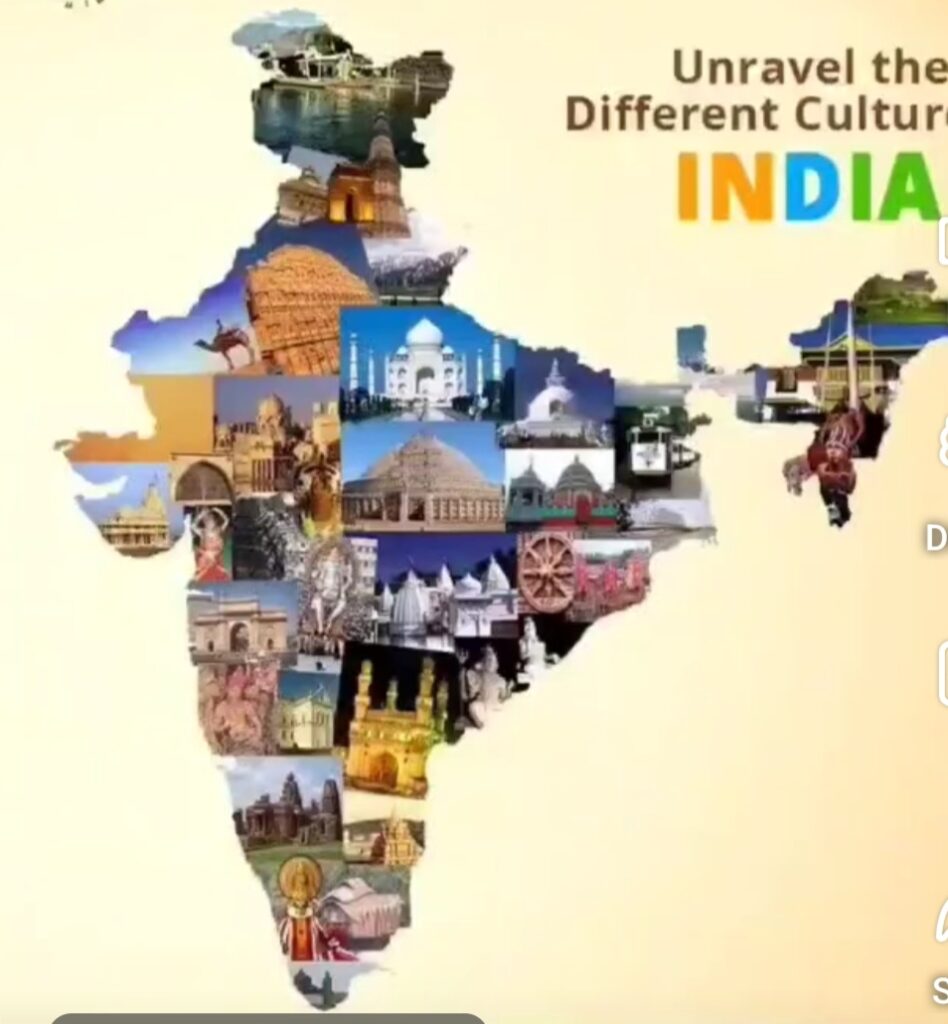
As we celebrate our 79th Independence Day, let’s look at where do we stand as a SECULAR NATION
The Pillar of a Plural Nation
India, a nation of 1.4 billion, is a mosaic of over 2,000 ethnic groups, 22 official languages, and every major world religion. At its core lies secularism, a constitutional principle that ensures equal respect for all faiths while protecting minority rights. Unlike Western secularism’s focus on separating religion from state, India’s model embraces pluralism, fostering coexistence in a vibrant, diverse society. Despite relentless challenges from majoritarian ideologies, secularism remains a resilient force, rooted in history and sustained by India’s composite culture. This article examines its historical foundations, legal framework, contemporary struggles, and critical role in India’s democratic future.
Historical Foundations: A Legacy of Coexistence
India’s secular ethos traces back to antiquity. In the 3rd century BCE, Emperor Ashoka’s edicts promoted tolerance, urging respect for Brahmins, Jains, Ajivikas, and other sects. Medieval rulers like Akbar advanced this tradition through sulh-i-kul (universal tolerance), abolishing the jizya tax and fostering interfaith dialogue at Fatehpur Sikri. Rulers like Jalaluddin Khilji prioritized governance over religious exclusion, laying early foundations for pluralism.
British colonial rule introduced uniform legal codes while preserving religious personal laws, creating a dual framework that influenced modern secularism. The nationalist movement harnessed this legacy, with Jawaharlal Nehru advocating a religion-neutral state and Mahatma Gandhi’s sarva dharma sambhava emphasizing equal respect for all faiths. These visions converged in the 1950 Constitution, blending state neutrality with reverence for diversity, setting India apart from Western secular models.
Constitutional Bedrock: Safeguarding Pluralism
The Indian Constitution embeds secularism as a core principle. The 42nd Amendment (1976) added “secular” to the Preamble, but the 1973 Kesavananda Bharati ruling deemed it part of the Constitution’s unamendable “basic structure.” Articles 25, 26, and 15 ensure religious freedom, institutional autonomy, and non-discrimination, respectively. India’s secularism maintains equidistance from all faiths, intervening to protect minorities or reform practices like caste discrimination, while managing Hindu temple boards but granting autonomy to minority institutions under Article 30.
The judiciary has been pivotal. S.R. Bommai v. Union of India (1994) established secularism as a constitutional cornerstone, allowing dismissal of state governments promoting religious division. St. Xavier’s College v. State of Gujarat (1974) protected minority institutions, reinforcing cultural diversity. The Shah Bano case (1985), however, highlighted tensions, as the Supreme Court’s secular ruling on maintenance was overridden by the 1986 Muslim Women Act, fueling debates over “pseudo-secularism” and the Uniform Civil Code (Article 44).
Majoritarian Pressures: A Test of Resilience
Since the 1980s, Hindu nationalist groups like the Rashtriya Swayamsevak Sangh (RSS) and Bharatiya Janata Party (BJP) have pushed a Hindu-centric identity, challenging secularism. The 1992 Babri Masjid demolition sparked violence, killing over 2,000, and undermined constitutional values. The 2002 Gujarat riots, claiming over 1,000 lives, mostly Muslims, and cow vigilantism incidents deepened communal divides. The 2019 Citizenship Amendment Act (CAA), excluding Muslims from expedited citizenship, and the abrogation of Article 370 raised concerns about majoritarian policies. A 2023 Pew Research Center report notes India’s high religious hostility index, amplified by social media misinformation.
The “pseudo-secularism” critique, alleging minority appeasement, ignores the Constitution’s mandate to protect vulnerable groups. State management of Hindu temples counters claims of anti-Hindu bias. Yet, secularism’s strength shines through in public resistance, such as the 2019–2020 anti-CAA protests, which united millions across faiths, as noted in a 2024 Amnesty International report.
A Syncretic Heritage: Secularism in Everyday Life
India’s secularism is lived through its composite culture. Sufi shrines like Ajmer Sharif and Sikh langars welcome all, reflecting interfaith unity. Festivals like Diwali, Eid, and Christmas foster shared celebrations, while Urdu poetry and Carnatic music blend religious influences. Kerala’s interfaith marriages and North India’s Ganga-Jamuni tehzeeb showcase cultural synthesis.
A 2021 CSDS survey found 79% of Indians, especially youth, support interfaith harmony, underscoring secularism’s grassroots appeal. Initiatives like the Interfaith Coalition for Peace sustain this ethos through dialogue.
Secularism and Equity: Bridging Divides
Secularism supports social justice through reservations for marginalized groups. However, personal law debates, like the 2019 triple talaq ban, reveal tensions between gender equality and religious autonomy. Economic disparities, with Muslims facing higher poverty rates (24.9% vs. 15.5% national average, Oxfam India 2022), highlight the need for inclusive policies. Programs like the Maulana Azad National Fellowship exemplify secularism’s role in uplifting minorities.
The Path Forward: Fortifying Secularism
To counter polarization, India must enforce anti-hate laws, as seen in the Supreme Court’s 2023 hate speech rulings. Electoral reforms, like stricter enforcement of the Representation of the People Act, can curb religious politicking. The National Education Policy 2020 offers a chance to promote constitutional values. The 2024 elections, with 66% voter turnout (Election Commission of India), reflect faith in democracy tied to secularism. Global comparisons, like Turkey’s religious nationalism, highlight India’s unique pluralism.
A Promise Worth Keeping
Indian secularism, a blend of ancient pluralism and constitutional mandates, is India’s promise to itself. As S.R. Bommai noted, it is a way of life, ensuring no community overshadows another. In a polarized world, India’s secular model offers hope, proving diversity can be a strength when anchored in equality and respect.
Hasnain Naqvi is a former member of the history faculty at St. Xavier’s College, Mumbai





